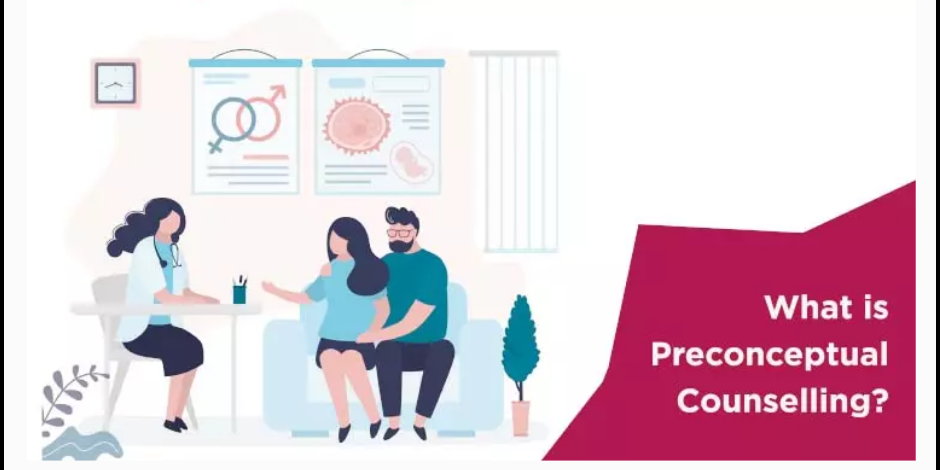Preconceptual counselling is a session or meeting with a doctor by an expecting couple before conception. Such a meeting includes an assessment of potential risk factors and medical complications that may arise during the period of pregnancy.
Pre-conceptual counselling addresses three key areas of pregnancy: medical, social, and psychological. With the help of a multidisciplinary approach, these sessions help a couple successfully overcome obstacles that may arise during pregnancy.
The main components of preconception care are physical assessment, risk screening, vaccinations, and counselling. For the same, the couple is advised to undergo screening tests as well as comprehensive assessments and checklists.
Importance of Preconceptual counseling
Men also play an equally important role in planning pregnancy.
So the assessment of both partners is necessary. When exposed to certain harmful substances, men may face fertility issues. This substance exposure may then elevate the risk of a possible number of birth defects or risk factors. Hence, the responsible development of fatherhood is equally important as motherhood for optimal conception to take place. In comparison to women, men have less knowledge of reproductive health and the essential steps that they should keep in mind when planning a family. The proactive involvement of men is essential to improving the chances of conceiving. And preconceptual counselling helps both men and women when it comes to planning a family.
An assessment of both partners is done regarding the possible use of any drugs, toxins, chemicals, and health consequences of tobacco, alcohol, and substance abuse during an upcoming pregnancy. Screening for any medical disorder, family history of any genetic disorder, nutritional assessment, and laboratory tests for the same are done.
So it is important to go for preconceptual counselling to understand the risks and how to eliminate them.
If the couple is at risk of having a child with any genetic diseases such as sickle cell anaemia, autosomal dominant polycystic kidney disorder, cystic fibrosis, etc., they are advised genetic counselling and recommended specific tests.
Benefits of Preconceptual Meetings
Pre-conceptual meetings benefit the father-to-be in a number of ways, as the doctor provides information about the risk factors and how to eliminate them. These sessions encourage the father-to-be:
- To quit smoking and avoid drugs, reduce consumption of alcohol, and learn about the harmful side effects of these in the process of conception,
- Stop the use of certain medications
These sessions also offer information related to:
- Adverse health effects by providing knowledge and necessary steps
- Genetic factors
- Mental health issues
- importance of having a support group and a safe environment
- Emerging or undetected existing illnesses and their correction, such as control of hypertension, diabetes, and proper management of hypothyroidism.
- Advice on vaccination of women against rubella and hepatitis B.
- Nutritional supplementation like folic acid.
- Avoidance of teratogenic drugs.
The goal of preconception care is to create awareness and promote a better reproductive outcome through health education, nutrition, and managing risk factors.
When you are going for preconceptual counselling, do your research and choose a qualified doctor in order to reap optimum benefits.







